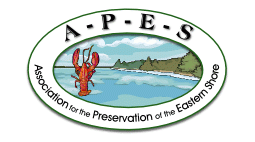You are here
Press Release: October 29 2015

From the Association for the Preservation of the Eastern Shore (APES)
"The provincial government cannot continue to say that the recently presented aquaculture regulations, as they refer to ocean based salmon/trout feedlots, reflect the implementation of the Doelle-Lahey report", says Wendy Watson Smith, spokesperson for the Association for the Preservation of the Eastern Shore (APES).
"The Doelle - Lahey report was a comprehensive report that was built with extensive input of all parties affected by this industry.
From the start of the writing of these regulations the spirit of the Doelle-Lahey report has not been implemented. The Doelle-Lahey report called for an ongoing Regulatory Advisory Committee that included coastal communities. Coastal communities are not represented on this committee. We are the people who have to live with the destructive nature of this industry. We are the communities who are left with dead zones in our harbours, and whose lobster and wild catch fishery is displaced. The few, part-time low paid jobs are all that we can expect from this industry. Our communities have a vision of development that includes the lucrative lobster and shellfish fishery and tourism that are dependant on a pristine environment.
The minister states that there is more transparency in the new regulations, but the requirement for a public meeting is the same as the old regulations whereby a proponent, along with the government come in and tell us what they are going to do." This is not what we consider to be meaningful consultation.
The new regulations have missed the basic premise that there had to be a fundamental overhaul of the regulations which took the concerns of citizens at face value.
In the Doelle/Lahey proposals there was the ability for communities to have input into the licensing, enforcement, and monitoring process, including revocation of leases. Communities would have been part of the assessment of whether there was net community socio-economic benefits from the proposed operation. This is not the case in the governments new regulations. In the Doelle -Lahey proposal there was to be an assessment of the applied for site that was to be much like an environmental impact study. This is missing.
The regulations as presented are based on the industry regulating itself, and communities will still be in the dark when it comes to disease outbreaks, medications and antibiotics used, escapees of feedlot salmon into the wild, and stocking densities.
Tax payers in our communities will still be heavily subsidizing an industry that destroys our harbours, threatens the lobster and wild catch industry, tourism and our clean waters."
Wendy Watson Smith, spokesperson
Association for the Preservation of the Eastern Shore
Copyright APES 2012 Website by Ionsign Online

